Power breakdown: Power supply being brought back to normal, say officials
Water and power minister briefs PM on nationwide blackout; says sabotage, not technical fault, caused the breakdown
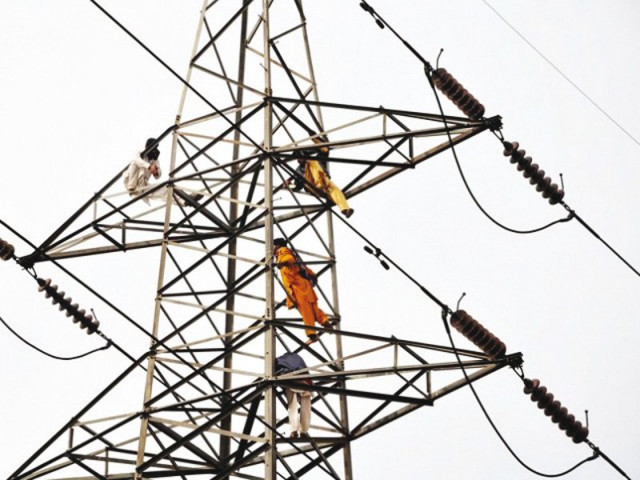
Water and power minister briefs PM on nationwide blackout; says sabotage, not technical fault, caused the breakdown. STOCK IMAGE
Power supply could not be fully restored 24 hours after a nationwide blackout hit the country around midnight Saturday. Top officials blamed sabotage at a transmission line in Naseerabad district of Balochistan for the breakdown of the national grid and said the system was brought back to normal.
Water and Power Minister Khawaja Asif said on Sunday that the system was gradually being brought back to normal as three plants have been connected to the national grid and within a few hours the system would be largely restored.
Briefing Prime Minister Nawaz Sharif on the nationwide power outage, Asif said the breakdown was not caused due to any fault in the transmission system. The premier directed the water and power ministry as well as provincial authorities concerned to completely restore power on war footings.
Speaking at a news conference in Islamabad, Water and Power Secretary Younas Dagha said on Sunday that the system was now supplying 7,500 megawatt of electricity against a demand of 11,500 megawatt.
He said that the power breakdown was caused when terrorists sabotaged a transmission line in the Notal area of Naseerabad district. It was the third sabotage incident in the same areas in about 12 days, he added.

The first incident took place on January 13 when three towers of Guddu-Sibbi transmission line were blown up by terrorists, resulting in tripping of the 800-900MW Uch Power Plants which supply power not only to the entire Balochistan but also to major parts of Pakistan.
The double circuit transmission line was immediately restored and the national grid didn’t face any major accident. However, the plants could not generate more than 600MW against a capacity of 800MW. “The system is still under repair,” he added.
The second incident happened on January 23 when a 15-foot gas supply pipeline of the Oil and Gas Development Company Limited (OGDCL) was sabotaged by terrorists. Gas supply to the Uch power plants was suspended, but OGDCL engineers repaired the pipeline immediately and supplies were restored without affecting major parts of the country.
Secretary Dagha claimed that the system was operating normally on January 24 supplying about 9,000-9,500MW and the production was expected to go up to 10,500MW. As a consequence, the government had planned to reduce duration of load-shedding to four, six and eight hours respectively to industrial, urban and rural consumers.
However, suddenly the transmission towers No 75 and 76 were blown up in the Notal area of Naseerabad just before midnight, causing the entire national grid to trip and triggering a nationwide blackout. He added that the areas under Sukkur and Hyderabad electricity supply companies were mostly unaffected.
Secretary Dagha said the electricity was restored to Islamabad in three hours, followed by Peshawar in the morning and the entire system was revived by 8:30am.
It’s difficult to rule out recurrence of such terrorist activities as the transmission line across the country could not be secured, he said and hastened to add that sensitive installations, like powerhouses, had sufficient security arrangements.
He said the provincial governments, local administrations and other security institutions had been requested to beef up security because “target of terrorism seemed to be Balochistan”.
Meanwhile power crisis deepened in Balochistan as officials said that most parts of the province were supplied electricity for two hours a day, while the provincial capital was getting power for 10-12 hours a day.
The duration of load shedding has increased across the province, a spokesperson for the Quetta Electricity Supply Company (Qesco) told The Express Tribune. “Merely 150MW is being supplied to Balochistan against the total demand of 1,650MW,” he added.
According to a new schedule, Qesco will supply electricity for only two hours to 28 districts of the province, while Quetta will get power supply for 10 to 12 hours a day. Most neighbourhoods of the province had to go without electricity for the past 24 hours.
Published in The Express Tribune, January 26th, 2015.


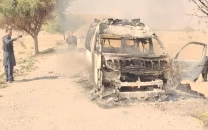


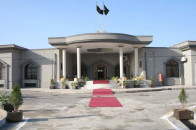
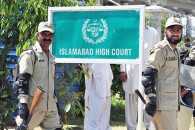


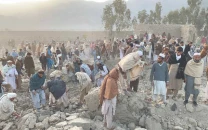


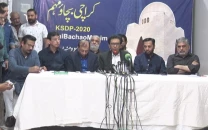






COMMENTS
Comments are moderated and generally will be posted if they are on-topic and not abusive.
For more information, please see our Comments FAQ